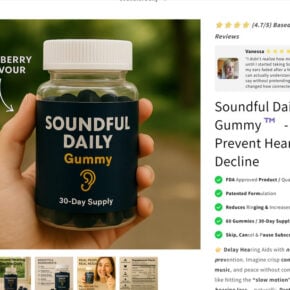Scams have become increasingly prevalent in the digital age, with scammers finding new and creative ways to deceive unsuspecting individuals. One such scam that has gained traction in recent years is the JetBlue ‘Free Tickets For Anniversary’ Facebook giveaway scam. This article aims to provide a comprehensive overview of this scam, including what it is, how it works, what to do if you have fallen victim, technical details, and statistics to support the points made.

What is the JetBlue ‘Free Tickets For Anniversary’ Facebook Giveaway Scam?
The JetBlue ‘Free Tickets For Anniversary’ Facebook giveaway scam is a fraudulent scheme that targets Facebook users by promising them free airline tickets in celebration of JetBlue’s anniversary. Scammers create fake Facebook pages that mimic the official JetBlue page, complete with the company’s logo and branding. These pages often have a significant number of followers, making them appear legitimate to unsuspecting users.
How Does the Scam Work?
The scam typically begins with a Facebook user coming across a post or advertisement claiming that JetBlue is giving away free tickets to celebrate its anniversary. The post may include enticing phrases such as “Limited time offer” or “Act fast to claim your free tickets.” Users are then instructed to click on a link or share the post to participate in the giveaway.
Once users click on the link or share the post, they are redirected to a website that appears to be an official JetBlue page. The website prompts users to enter their personal information, such as their name, email address, and phone number, to claim their free tickets. In some cases, users may also be asked to complete surveys or download malicious software.
After providing their personal information, users are often asked to share the scam with their Facebook friends to increase the reach of the fraudulent scheme. This helps the scammers gain more victims and perpetuate the scam.
What to Do If You Have Fallen Victim?
If you have fallen victim to the JetBlue ‘Free Tickets For Anniversary’ Facebook giveaway scam, it is crucial to take immediate action to protect yourself and minimize the potential damage.
1. Change Your Passwords
The first step is to change your Facebook password to prevent further unauthorized access to your account. Additionally, if you have used the same password for other online accounts, it is recommended to change those passwords as well to avoid any potential compromise.
2. Report the Scam
Report the scam to Facebook by clicking on the three dots in the top-right corner of the post and selecting “Report post” or “Report ad.” This will help Facebook take appropriate action against the scammer and potentially prevent others from falling victim.
3. Scan for Viruses and Malware
It is essential to scan your device for viruses and malware that may have been downloaded as part of the scam. Malwarebytes Free is a reliable antivirus software that can help detect and remove any malicious software from your device. You can download it from Malwarebytes Free.
4. Be Vigilant for Identity Theft
Monitor your bank accounts, credit cards, and other financial accounts for any suspicious activity. If you notice any unauthorized transactions or suspect that your identity has been compromised, contact your financial institution immediately to report the issue and take appropriate measures to protect your identity.
Technical Details of the Scam
The JetBlue ‘Free Tickets For Anniversary’ Facebook giveaway scam utilizes various techniques to deceive users and collect their personal information. Here are some technical details of the scam:
- The scammers create fake Facebook pages that closely resemble the official JetBlue page, using the company’s logo and branding to appear legitimate.
- They often use URL shorteners or redirect users to websites with similar domain names to trick them into believing they are on the official JetBlue website.
- The scammers may employ social engineering tactics, such as creating a sense of urgency or scarcity, to prompt users to take immediate action.
- Some versions of the scam may require users to complete surveys or download malicious software, which can lead to further compromise of their devices.
Statistics on Facebook Scams
Facebook scams, including the JetBlue ‘Free Tickets For Anniversary’ Facebook giveaway scam, have become a widespread issue affecting millions of users worldwide. Here are some statistics that highlight the prevalence of Facebook scams:
- According to a report by the Better Business Bureau, Facebook scams accounted for over $117 million in reported losses in 2020.
- In a survey conducted by NortonLifeLock, 1 in 5 respondents reported falling victim to a Facebook scam.
- According to Facebook’s own statistics, they disabled over 1.3 billion fake accounts between October and December 2020.
Summary
The JetBlue ‘Free Tickets For Anniversary’ Facebook giveaway scam is a deceptive scheme that preys on unsuspecting Facebook users by promising them free airline tickets. The scam works by redirecting users to fake websites where they are prompted to enter their personal information. If you have fallen victim to this scam, it is crucial to take immediate action by changing your passwords, reporting the scam, scanning for viruses and malware, and being vigilant for identity theft.
Facebook scams, including this particular scam, have become a significant issue, resulting in substantial financial losses for victims. It is essential for users to stay informed, exercise caution, and report any suspicious activity to protect themselves and others from falling victim to these scams.



